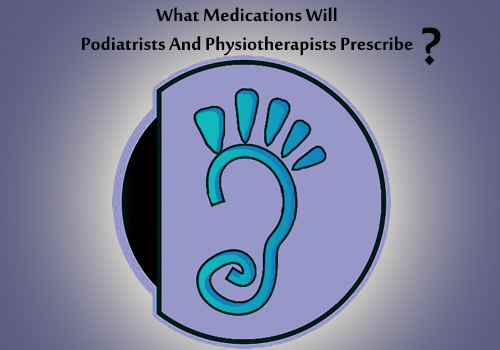Podiatrists And Physiotherapists Will Be Allowed To Prescribe Medicines
18th September 2013
 With delays to diagnosis and treatment a factor in a wide number of medical negligence claims, anything that can increase the speed of a diagnosis and enable rapid treatment is welcome. Not only would this reduce the state’s expenditure on clinical negligence compensation, but it would also improve patient outcomes and add a seamless nature to NHS treatment.
With delays to diagnosis and treatment a factor in a wide number of medical negligence claims, anything that can increase the speed of a diagnosis and enable rapid treatment is welcome. Not only would this reduce the state’s expenditure on clinical negligence compensation, but it would also improve patient outcomes and add a seamless nature to NHS treatment.
New legislation could go some way to reaching this goal. Care and Support Minister Norman Lamb has announced that podiatrists and physiotherapists will be able to prescribe medicines to their patients independently. This means people will not have to visit a GP to receive the drugs they have been recommended after seeing these healthcare professionals.
There will be regulations relating to these prescriptions, of course. Practitioners will have to go on approved training courses if they are to prescribe medicines, and will only be allowed to prescribe treatments that are applicable to their role. It is expected that the first physiotherapist and podiatrist prescriptions will be issued in summer 2014, as practitioners will have completed their courses by this time.
All physiotherapists and podiatrists allowed to prescribe medicines will be appointed as ‘independent prescribers’ on the Health and Care Professions Council register. This council has published prescribing standards for educational programmes and individual prescribers.
Some of the ways this initiative could prevent medical negligence compensation claims is by:
– Decreasing the amount of time it takes for patients to receive medicines
– Allowing people to receive comprehensive healthcare close to home
– Enabling self-management and self-care
– Maximising the benefits of podiatry and physiotherapy to improve standards of treatment
What medications will podiatrists and physiotherapists prescribe?
 Physiotherapists help people with physical problems, supporting movement and maximising flexibility. Patients of physiotherapists include people who have been in accidents, people requiring rehabilitation and elderly people. Some of the drugs these medical practitioners will be able to prescribe will include anti-inflammatories and analgesics (painkillers), which should improve recovery times and patient wellbeing.
Physiotherapists help people with physical problems, supporting movement and maximising flexibility. Patients of physiotherapists include people who have been in accidents, people requiring rehabilitation and elderly people. Some of the drugs these medical practitioners will be able to prescribe will include anti-inflammatories and analgesics (painkillers), which should improve recovery times and patient wellbeing.
Podiatrists don’t just deal with ingrown toenails and other standard foot problems – many of their patients have food conditions due to other illnesses. Some of these conditions include diabetic foot ulcers, dermatological problems and arthritis in the ankle and foot. The legislative changes will ensure patients can receive prompt treatment for these conditions.
While this looks like a good way to reduce the number of delayed treatment clinical negligence claims from the point of view of our medical negligence solicitors, it is worth noting that this will be the first time in the world that physiotherapists will be able to prescribe medicines.
Mr Lamb said this new move shows the rest of the world that the UK’s NHS is at the “forefront of healthcare”, and if the initiative effectively prevents medical negligence claims and improves patient outcomes, other nations will likely replicate it and allow other healthcare professionals to issue prescriptions.
With adequate training, and with only a limited number of drugs to prescribe, podiatrists and physiotherapists should be able to avoid prescription error clinical negligence claims, but our medical negligence solicitors predict there will be a slight rise in the number of prescription errors as a result of this initiative. This should be counterbalanced by improved patient outcomes.

